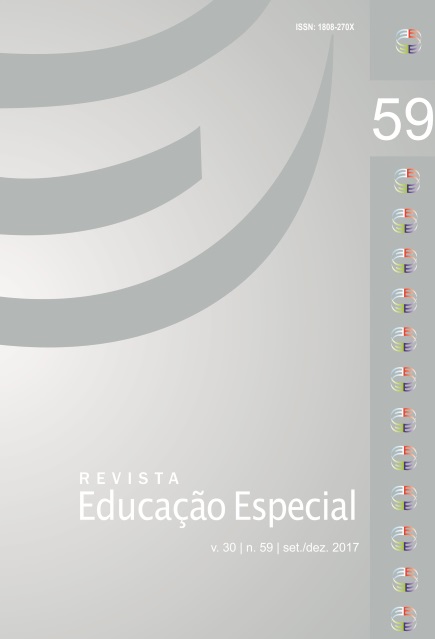Changing teachers’ social attitudes toward inclusion: transformation together with students
DOI:
https://doi.org/10.5902/1984686X28429Keywords:
Inclusive education, Teacher training, Changing social attitudesAbstract
Educational trainings for inclusive education usually deal with technical and conceptual aspects. It happens that teacher’s personal variables, like social attitudes, are decisive in the inclusive educational process. In this article, the effects of an innovative intervention are evaluated. 52 Elementary School teachers from two public schools in medium city took part in a training to be qualified to apply an informative program about disabilities and inclusion to their students using pedagogical and ludic strategies whose purpose was to change their social attitudes toward inclusion. Social attitudes of all teachers were evaluated using Escala Likert de Atitudes Sociais em relação à Inclusão (Likert Scale of Social Attitudes toward Inclusion). The evaluations were made in three proper moments during the experiment. The training strategy was effective, since the teachers changed their own social attitudes while they are involved in the attempt to change their students' social attitudes, becoming more favourable to the inclusion.Downloads
Downloads
Published
How to Cite
Issue
Section
License
Declaration of originality
We declare that all articles present in the journal Revista Educação Especial (UFSM) are originals and were not submitted for publishing on any other publication, as a whole or a fraction. We also declare that, after being published by Revista Educação Especial (UFSM), a paper will not be submitted to another journal within two years. After this time, our journal transfers the publishing rights to the authors, with a permit granted by the Editorial Council.
We also acknowledge that the originals’ submission to Revista Educação Especial (UFSM) implies on a transference of copyright for physical and digital publishing to the journal. In case of noncompliance, the violator will receive sanctions and penalties predicted by the Brazilian Copyright Protection Law (n. 9610, dated 19/02/98).







